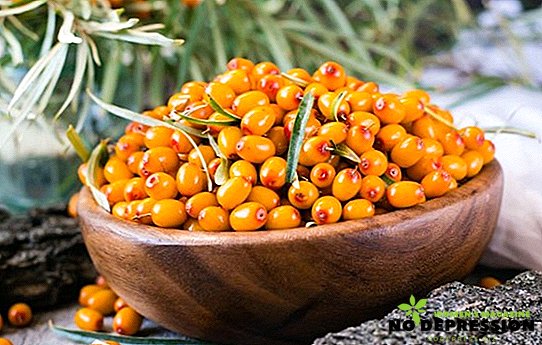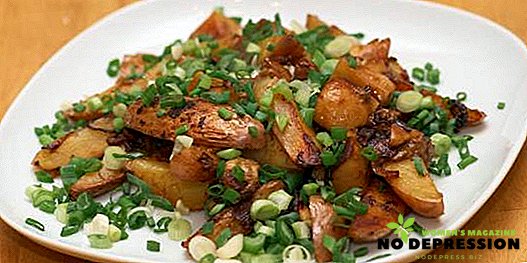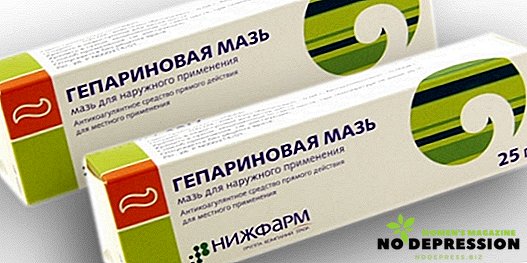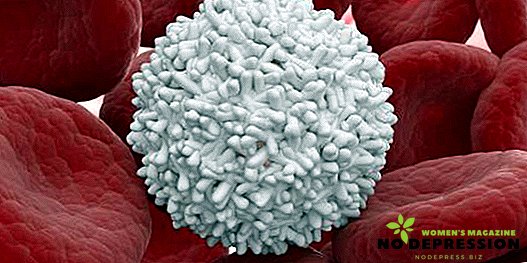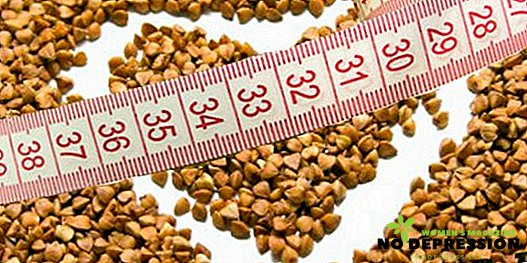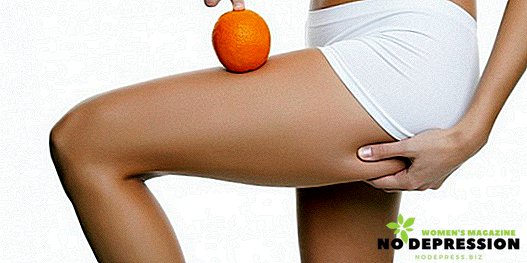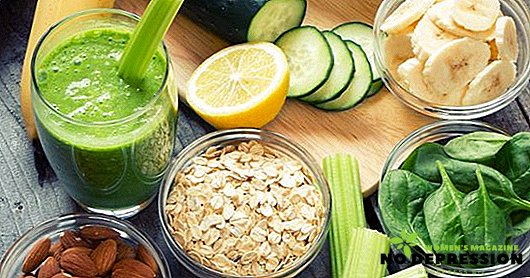With the birth of the baby in the life of every woman there are cardinal changes. And it concerns not only the appearance and daily routine, but also nutrition. How to diversify the diet of the mother who decided to breastfeed the baby, which products should be discarded so as not to harm the baby?

Features of the preparation of the diet of a nursing mother of a newborn
Every woman who is breastfeeding a baby is very important to review their diet, removing harmful foods from it and adding healthy ones. This is necessary so that the body of a newborn, which only adapts to independent living, can start the processes of digestion and absorb mother's milk.
In addition, during this period, the mother's body needs good nutrition in order to help your body recover from pregnancy and childbirth.
 There are different approaches to the compilation of the nursing mother's menu. One comes down to a drastic reduction in the amount of food, while the other on the contrary implies a rich and nutritious diet. But it turns out that both of these approaches are wrong.
There are different approaches to the compilation of the nursing mother's menu. One comes down to a drastic reduction in the amount of food, while the other on the contrary implies a rich and nutritious diet. But it turns out that both of these approaches are wrong.
The menu of women after childbirth should include: meat, cereal cereals, pasta, dairy products, vegetables, fruits, eggs, vegetable oil. At the same time, the amount of sugar should be limited. Since everything that mom eats, immediately enters the body of a child, you need to carefully monitor the quality and quantity of edible products.
During intrauterine life, nutrients in a processed form through the umbilical cord got into the body of the baby. Now his body needs to work independently.
From the first minutes of life, tremendous changes occur in his body: the digestive glands are activated, which help in the digestion of food, the intestines are colonized by microorganisms, the development of intestinal motility occurs. And the normal course of all these processes directly depends on the quality of breast milk.
The basic principles of nutrition women in this period:
- Sufficient calorie dishes. A woman during lactation should consume about 2500 kcal per day. In this case, the caloric content of food should be increased to a maximum of 500-700 kcal in comparison with the diet, which she followed before the birth of the child. Increasing the number of calories consumed above the specified norm does not affect the nutritional value of breast milk, but it can significantly harm the figure of a young mother.
- Full composition. Regularly together with food about 120 g of protein, 500 g of complex carbohydrates and 100 g of fat (of animal and vegetable origin) should be supplied to the mother’s body.
- The presence of sufficient amounts of vitamins and minerals in food. Vitamins take part in biochemical processes, not only mothers, but also the child. Therefore, in the diet should include vegetables and fruits. No less important are the minerals: calcium and phosphorus for the bones and teeth; iodine is an important element for the functioning of the thyroid gland; iron for blood.
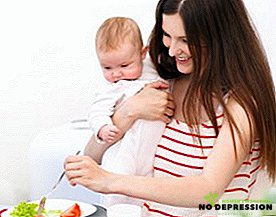
- Fractionality. During the day, a woman should have 3 full meals and several snacks. This diet will ensure the production of breast milk.
- Security. All products on the menu of women should be of high quality and safe. The gastrointestinal tract of the baby is still very sensitive to various allergens and their ingestion can cause irreparable harm to the baby and cause allergies. When mom eats poor quality and unsafe products, a child may develop a skin rash, itching, heavy or frequent regurgitation and vomiting, flatulence, constipation or loose stools, colic, angioedema, and other symptoms.
Therefore, a woman should stop using such products for as long as she breastfeeds:
- spicy, salted, canned, smoked dishes, seasonings, cool broths, pickles, fresh onions and garlic;
- products that contain allergens: red or orange vegetables, fruits and berries, tropical fruits, seafood, honey, nuts, cocoa and its containing products, mushrooms, chicken eggs;
- products that have dyes, flavors;
- alcohol;
- carbonated drinks.
The diet of the nursing mother in the first week after birth
Immediately after giving birth, a woman needs special nutrition. This is due to the fact that now she needs energy for recovery after childbirth and proper organization of lactation.
During this period, it is also necessary to remember that the digestive system of the crumbs is very vulnerable and is not capable of digesting the complex food that it receives along with the mother's milk. Therefore, in this period, the diet of women should be limited and at the same time contain a maximum of useful substances.
 Most women who have just given birth feel a strong feeling of thirst. This is explained by the fact that in the process of labor she lost a large amount of fluid, which the body now seeks to fill.
Most women who have just given birth feel a strong feeling of thirst. This is explained by the fact that in the process of labor she lost a large amount of fluid, which the body now seeks to fill.
The formation of lactation also requires additional fluid. During this period, a woman can drink water without gas, a weak tea or a not very sweet compote brewed from dried fruits.
In the first 7 days after the birth of the baby, mothers should introduce into the diet natural dairy products without additives (kefir, yogurt, ryazhenka, etc.). But from such products it is better to refuse:
- strong tea and coffee, which contribute to the excitation of the nervous system of the baby;
- juices are a common cause of food allergies and abdominal distention;
- cereals containing gluten (wheat, millet, barley), as they may be allergic;
- fried meat, especially chicken, which may contain antibiotics;
- some vegetables - cabbage, tomatoes, onions;
- whole milk, which is an allergen;
- dairy products with additives (store yogurts, curds);
- fish and other seafood;
- chicken eggs;
- honey and nuts;
- fruits and berries.
In the first week, mom can eat:
- porridges boiled in water (buckwheat, rice, corn);
- pasta;
- steamed vegetables (potatoes, cauliflower, zucchini, carrots);
- boiled rabbit or veal meat;
- low-fat dairy products (cottage cheese, kefir, sour cream);
- black bread, crackers;
- vegetable oil;
- galetny cookies.
Such a limited menu in the first week of a baby’s life is necessary so that he doesn’t have digestive problems or allergies.
The diet of a nursing mother in the first month
From the second week of the life of the newborn, the mother will be able to understand how and what products the crumb transfers. Therefore, now the diet can be gradually expanded by adding new foods to food.
In order for the woman's body to have the opportunity to produce the optimal amount of milk for feeding the baby, the mother needs to drink at least 2-2.5 liters of fluid daily. This can include water without gas, weak tea, compote, boiled their dried fruits, decoctions of herbs (chamomile, mint and lemon balm), rosehip infusion. Coffee while you can not drink.

Products that must be in my mother's diet in the first month of breastfeeding:
- porridge. After a week, you can gradually introduce other types of cereals (oatmeal, wheat, millet and barley). They can be cooked both in water and in milk with the addition of butter;
- pasta;
- vegetables. During this period, the gradual introduction of Bulgarian pepper (green or yellow), eggplant, pumpkin and greens is allowed. To save the baby from gas and colic, all vegetables must be thermally processed;
- meat - veal, turkey and rabbit. 7 days after delivery, the introduction of beef tongue is allowed;
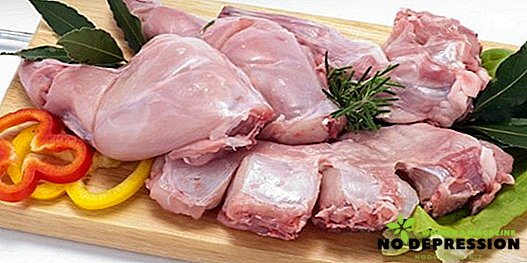
- dairy products (low-fat cottage cheese, sour cream, kefir, ryazhenka). After a week of strict diet, mom can try to add a small amount of whole milk to cereal, if the child does not have colic. Several pieces of cheese are allowed;
- black and white bread without additives;
- crackers, drying, cookies, natural jam and jam;
- fruits baked in your area;
- dried apricots, prunes;
- unrefined vegetable oil.
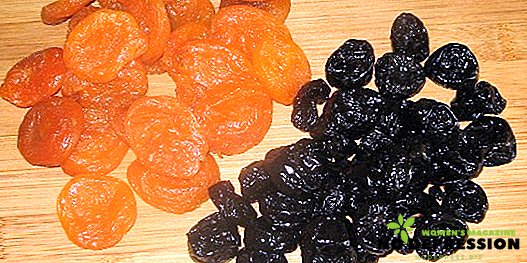
Under the ban in the first month remain:
- vegetables (cucumbers, cabbage, onions, garlic, tomatoes, green peas);
- fatty meat (pork, lamb), chicken and offal;
- whole milk, in case the child has increased gas formation and colic.
- any fish;
- eggs;
- muffins and pastry;
- fresh fruits, as they cause colic;
- nuts, raisins.
 If the baby has a negative reaction to one of the products, it should be completely excluded for a period of two months. After that, you can try to offer it again.
If the baby has a negative reaction to one of the products, it should be completely excluded for a period of two months. After that, you can try to offer it again.
After all, over time, the baby's body begins to produce its own enzymes that help it digest food, and it is quite possible that by this time it will be ready for this product.
It is important to remember that any product that is not yet familiar to the baby, you should enter one in 3-4 days. This time is needed so that the mother can observe how the children's organism cope with the novelty.
At this time, you need to carefully observe the baby, assessing his condition (stool, colic, rash, etc.).
Proper diet for a nursing mother of a newborn for months
Immediately after giving birth, the young mother is told that now she needs to adhere to a special diet for the time of breastfeeding. What is meant by this concept? A breastfeeding diet does not mean eating restrictions or consuming certain foods. It would be better to call it a healthy diet.
Principles of proper nutrition:
- A nursing mother should drink an average of 2 liters daily. It can be water without gas, not strong tea, compote brewed from dried fruit or juice.
- Caffeine and alcohol in this period is completely banned.
- Products that are capable of causing allergies should be introduced into the menu gradually with care. The best option is 1 new product in 3-4 days. The first time you can try a small amount of the new product and if the reaction of the child's body did not follow, then gradually the dose can be increased.
- If you are accustomed to spicy food and a lot of seasoning, it is better to refrain from such food, at least the first 3 months after birth. Then you can gently add your favorite seasonings, while tracking the reaction of the baby.
- Mom's diet should contain dairy products, meat, vegetables and fruits in reasonable quantities.
- The amount of sweet and flour should be dosed.
- Carbonated drinks, fatty, spicy and smoked products are prohibited.
Consequently, the diet of a nursing mother for months is nothing more than a healthy and balanced diet, with enough vitamins and minerals in the diet.
The number of meals for each woman can be individual. It is better to eat fractional, often eating a small amount of food, so as not to experience an acute sense of hunger. All food should be boiled, stewed or baked. It is better to refuse fried foods for a while.
Nursing mother drinking regime
 In the process of childbirth, the female body is dehydrated, losing a lot of fluid. Therefore, he is in dire need of its completion.
In the process of childbirth, the female body is dehydrated, losing a lot of fluid. Therefore, he is in dire need of its completion.
In addition, the quantity and quality of breast milk will depend on how much it enters the maternal organism. It was experimentally found that 1 cup of water, drunk 15-20 minutes before feeding, contributes to the production of milk in larger quantities.
The daily rate of fluid intake for a woman during the feeding period is 2-2.5 liters. It also includes soups, juices, milk and other liquids.
It is worth considering that everything that was drunk and eaten by mom directly affects the quality of breast milk. Therefore, as a drink, it is better to give preference to mineral or purified water without gas.
Diet for mom with colic in a child
According to statistics, about 70% of all newborns older than 3 weeks experience colic. Their occurrence is often associated with the mother's diet. Therefore, to protect the baby from trouble, a woman should be attentive to what she eats.
It is possible to protect a child from colic if you exclude products from your menu that can cause bloating.
All vegetables that mother consumes should be thermally processed (boiled or baked).
 At the same time from the white cabbage and tomatoes, in the first months it is better to completely give up. Among the fruits it is better to prefer baked apples.
At the same time from the white cabbage and tomatoes, in the first months it is better to completely give up. Among the fruits it is better to prefer baked apples.
For the period when colic is possible (the first 3 months of a child’s life) it is better to refuse whole milk. But the amount of fermented milk products can be increased.
Bean products lead to bloating, so they should be excluded. Meat to choose fresh and lean. You can cook it by boiling or stewing. It is also advised to cook meatballs or meatballs. Porridge must be cooked in water and dressed with butter.
Gassing can cause fresh bread. Therefore, it is better for a nursing mother to eat dried or yesterday's white bread.
Additional information about the diet can be obtained from the following video.





